At the latest Mr and Mrs Lin Jo Yan Professorship Public Lecture, Professor David Reeb, the Mr and Mrs Lin Jo Yan Professor in Banking and Finance from NUS Business School discussed how individuals and organisations can improve our decision making process and avoid irrationality when approaching the financial markets.
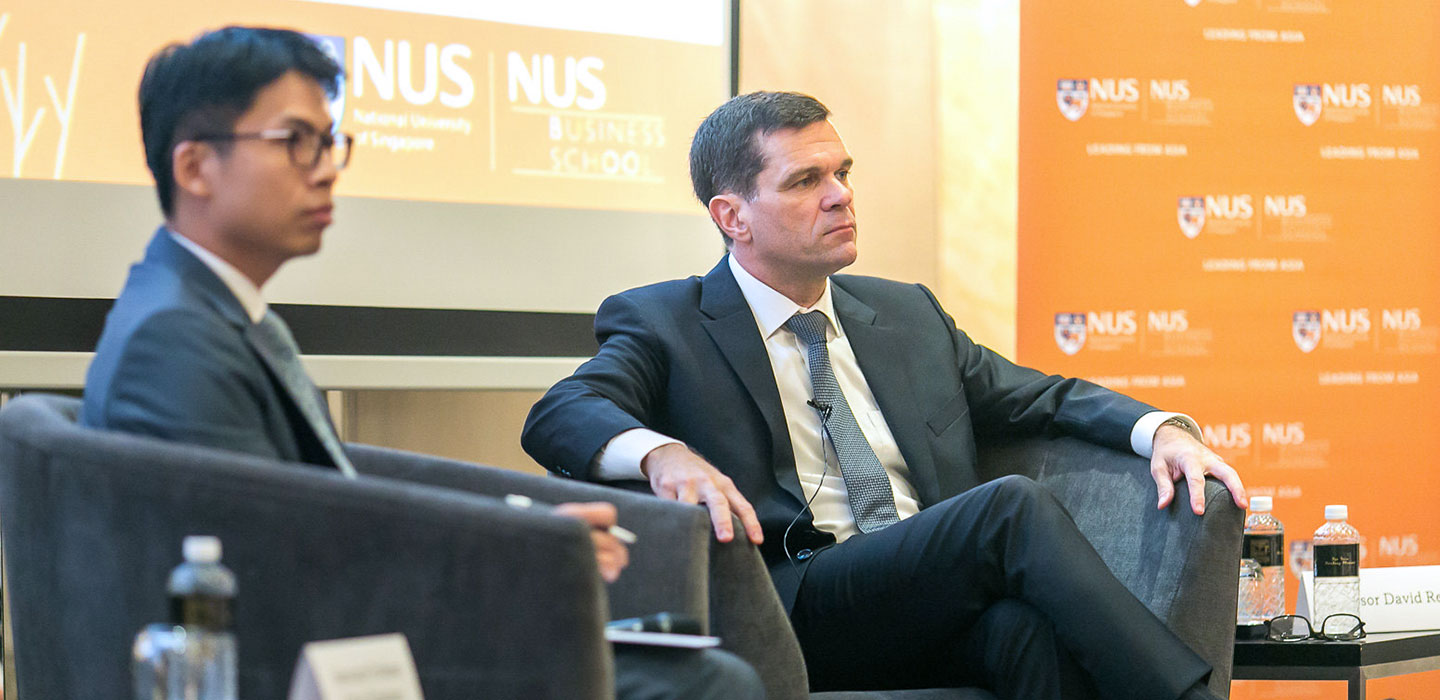
Mitigating financial mistakes with Prof David Reeb
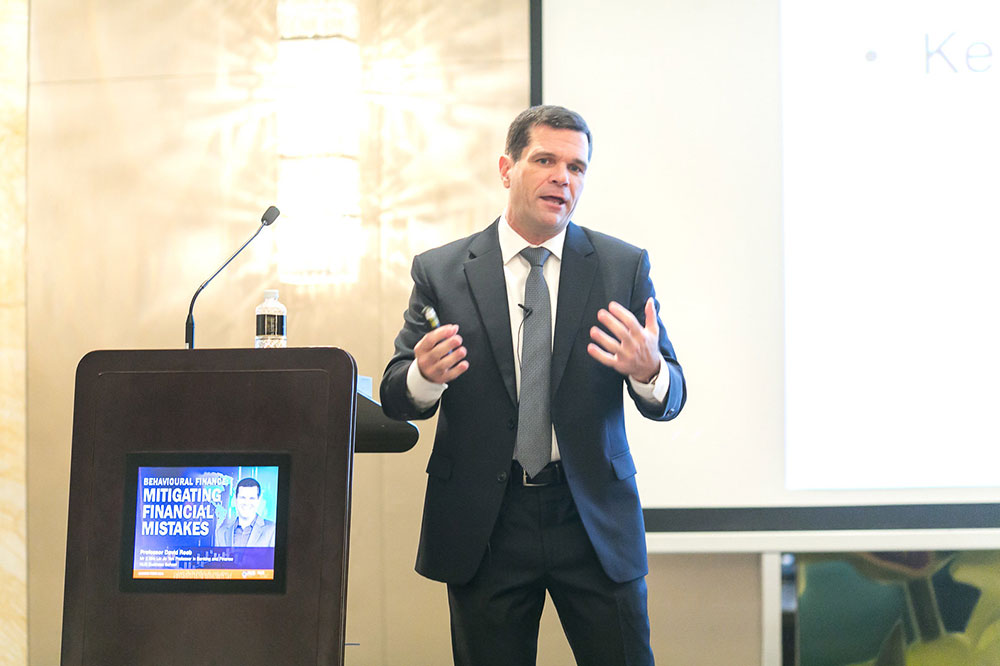
NUS BBA Year 2 Ang Jun Hean, who emceed the event, shares his key learnings from the lecture as he strives to put into practice these teachings into his personal investment portfolio.
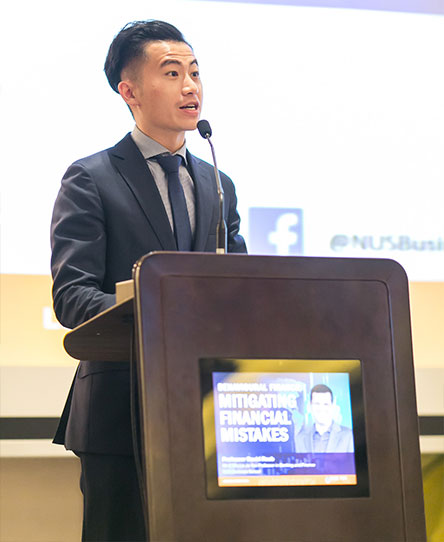
Prof Reeb gave a snapshot of his extensive research done into the historical performance of various financial instruments. To my surprise, Prof Reeb revealed how 72% of active investment funds under perform in terms of overall market performance. After accounting for fees and the extensive brokerage fees that active funds incur, it was insightful to me as it was demonstrated how hiring an “active” investor doesn’t necessarily equate good performance or a high return of investment.
Prof Reeb also shared his tailored investment insights for the Singaporean investor. Firstly, he personally felt that the Central Provident Fund (CPF) was a very strong risk-free investment vehicle for those who had access to it.
Second, he observed that Singaporean investors tend to be insular when it comes to investing, choosing to focus on the local stock market and in companies they are familiar with. Prof Reeb explained how although Singapore companies only make up a small proportion of the global markets, but most local portfolios have a disproportionate amount of Singapore investments. This “irrational” behaviour of having a familiarity bias reduces the diversification of portfolios and affects investment performance.
Finally, Prof Reeb gave his personal investment insight on how he sees value in investing in Index funds, which incur a very low percentage in management fees and consistently outperform most active investment vehicles.
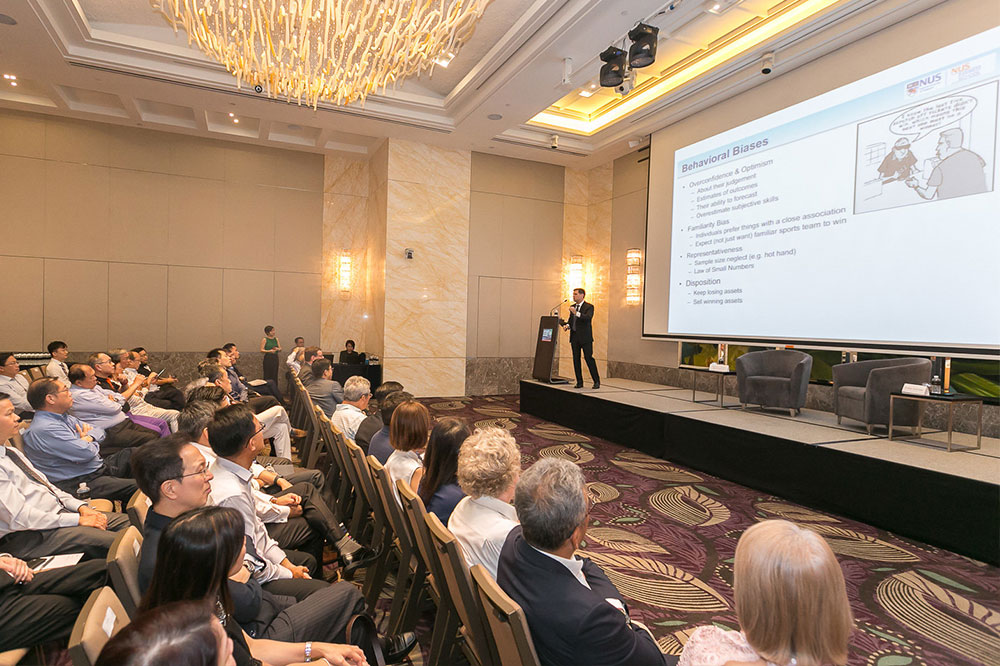
As an investor, a lot of the irrational behaviours like belief perseverance (a reluctance to update beliefs), anchoring (latching onto an initial estimate and moving slowly away), availability bias (heavily focusing on personal or recent events), expert bias (relying on the opinions of experts), struck really close to home. I realised I was guilty of overloading my investment portfolio on local blue-chip stocks simply because they were local household brands and seemed like the “comfortable” choice.
The lecture’s sharing on how we should avoid expert bias also reminded me to not just accept the expert opinions of analysts and reports. Rather, to include proper analysis of cash flows and the fundamental performances of the company.
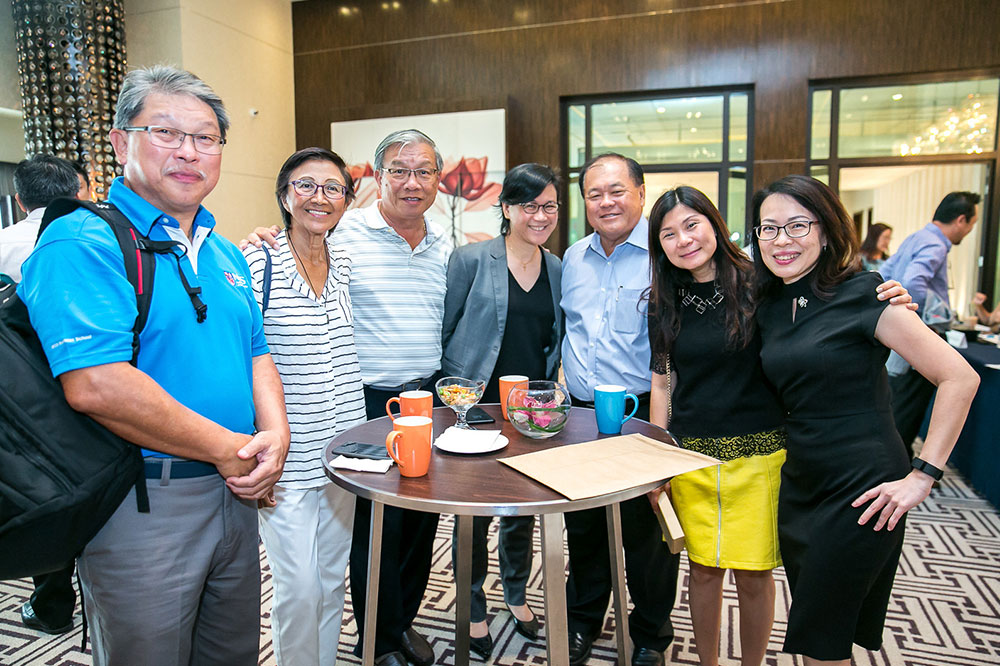
All in all, the public lecture really value-added to my investment knowledge and framed my learnings from the NUS BBA finance courses in a practical, real-life perspective in terms of how to invest for retirement and beyond.
The lecture ended with a dialogue with Prof Reeb moderated by Associate Professor Johan Sulaeman, which cleared up a lot of the queries and doubts from the public audience.
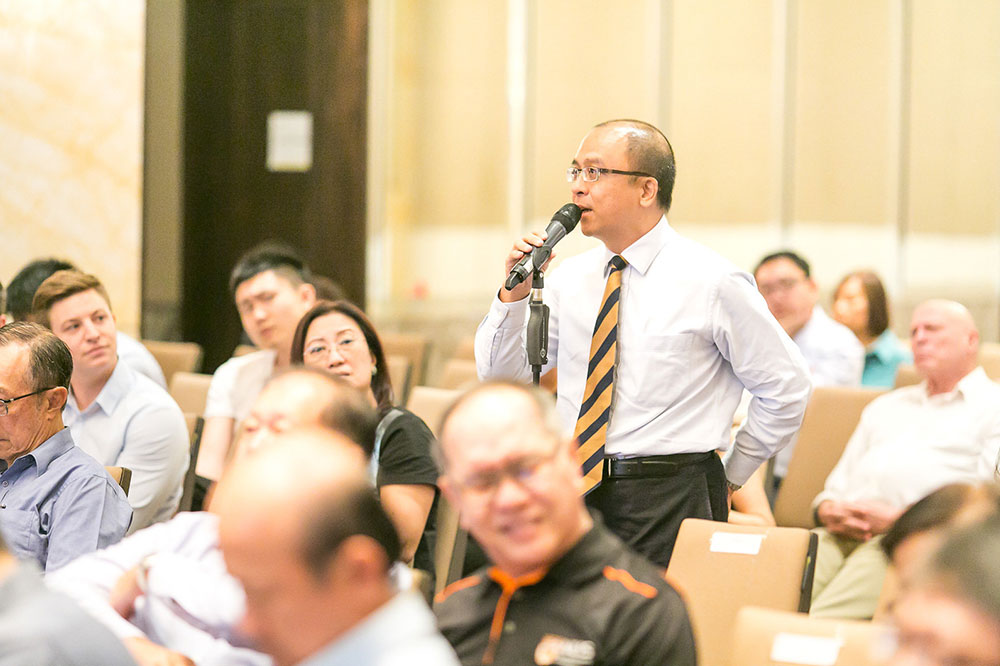
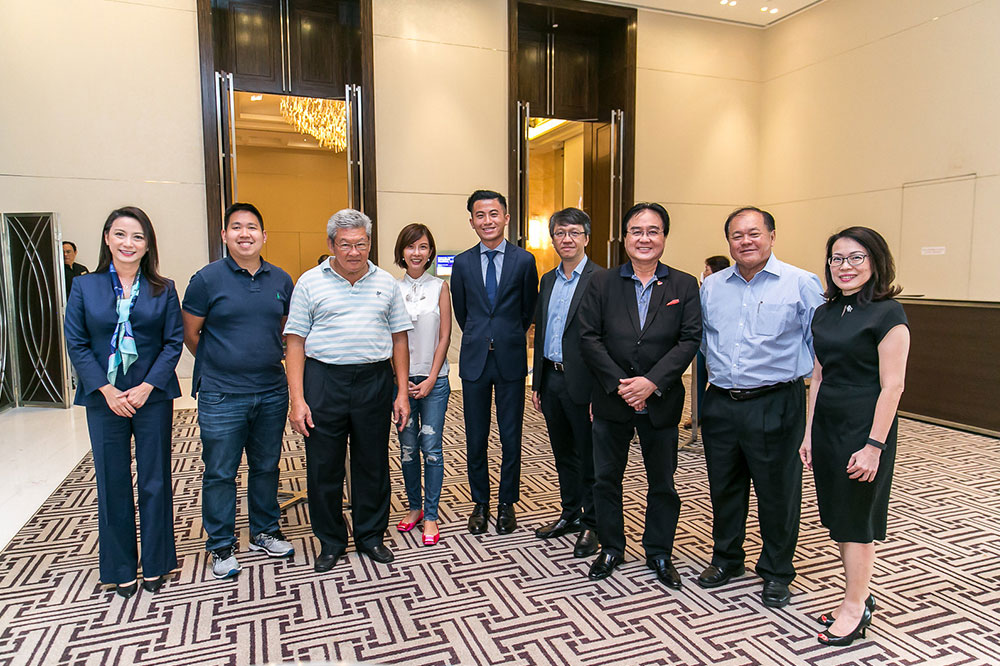
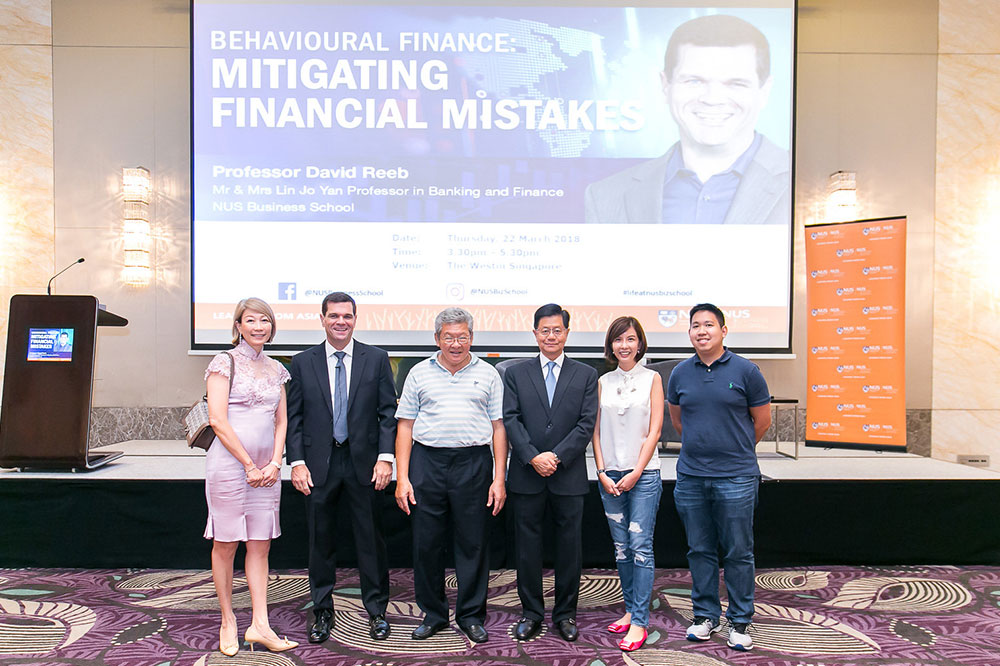
A preview of the lecture is also available here: http://bit.ly/2GyytDS. For more information on professorships, please visit here.


